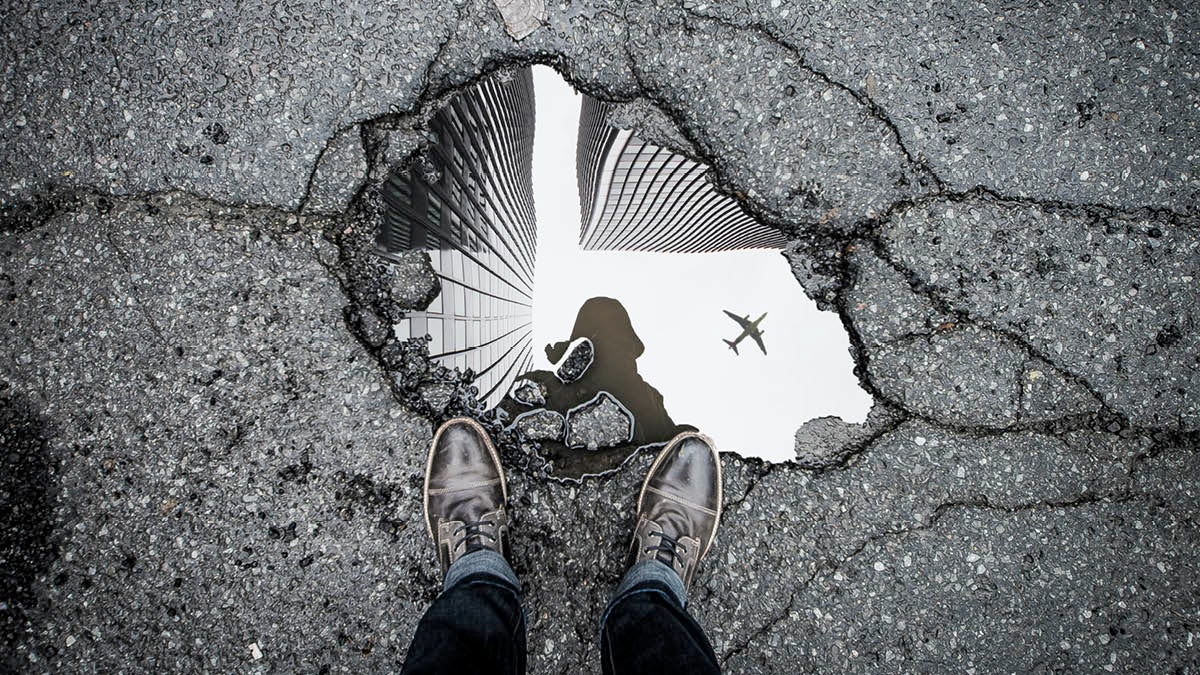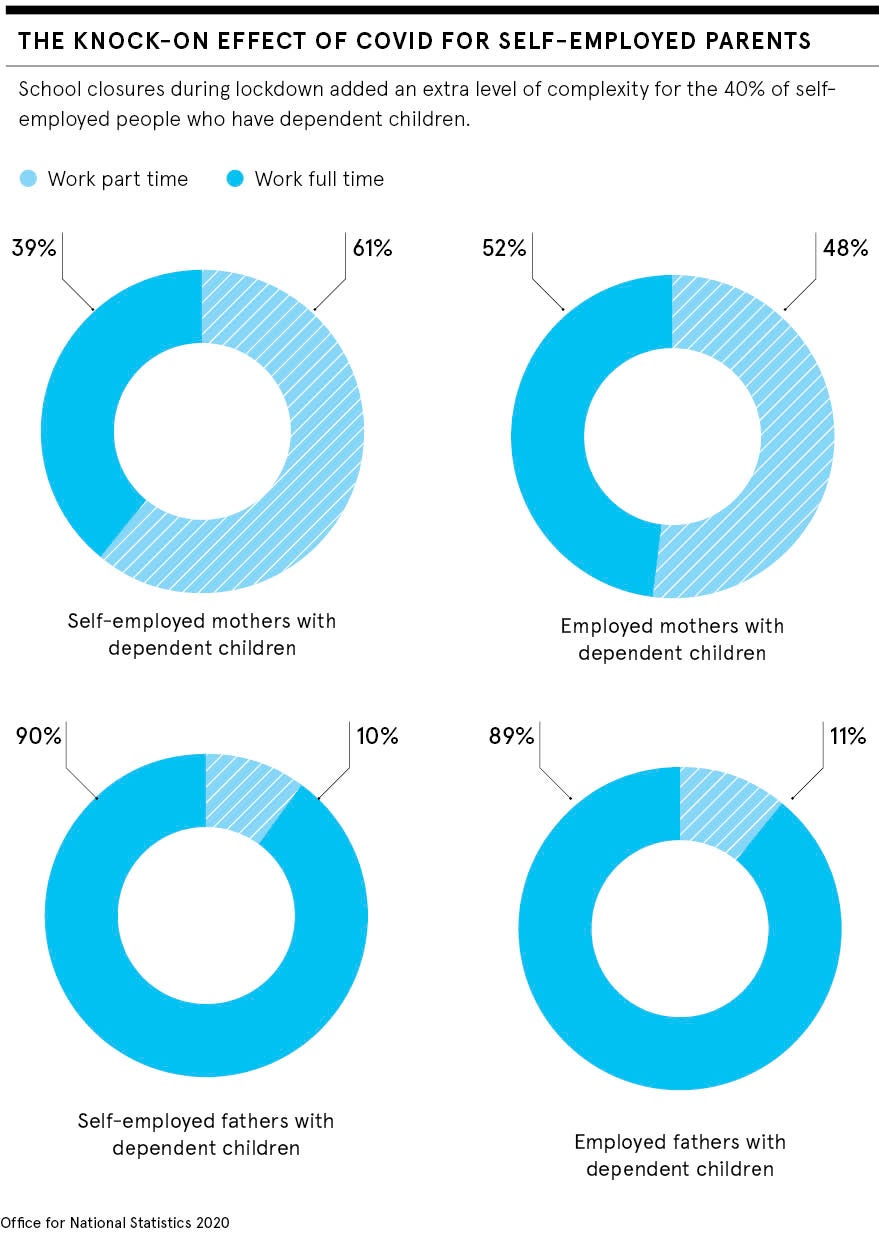
When disaster strikes, who protects the unprotected? Three years ago, LV= calculated that just 4 per cent of self-employed workers in the UK had income protection cover. The insurance firm warned, with eerie prescience, of a “heightened risk of a financial crisis”.
At a conservative estimate, more than four million members of the UK’s self-employed workforce did not have relevant insurance when the coronavirus pandemic began to suffocate the economy. And now that they are feeling the squeeze, having complained about inadequate financial support from the government, many are so cash strapped, it is hard to justify paying insurance premiums.
The plight of Dani, a Preston-based freelance lighting technician, is all too typical. On March 17, a day after prime minister Boris Johnson announced lockdown plans, she was due to begin her dream job. “Literally ten minutes after that announcement, the email came through from the theatre explaining ‘we can’t continue’,” she says.
The 31 year old has fallen through every financial crack and only receives Jobseeker’s Allowance. But at £73 a week, it doesn’t cover her bills. With Dani’s partner being made redundant, the outlook is bleak. “I don’t even feel like we’re surviving,” she says.
Self-employed musician, composer and sound engineer David, who lives in Perth, Scotland, qualified for the government’s COVID-19 Self-Employment Income Support Scheme, but he too is struggling to cope financially.
David and his wife, a care worker, haven’t bought anything non-essential since March and, to reduce petrol costs, their car has remained stationary. Despite tightening their belts, this has not been enough to prevent having to dip into their savings to pay the bills.
“The events industry folded overnight,” says David. “That’s my entire income gone. What am I going to do? Have I got any transferable skills?”
It is a particularly challenging time for those in the live events industry, which depends on self-employed workers with niche skills. Conal Dodds, who co-founded Bristol-headquartered Crosstown Concerts in 2016 and had staged more than 300 music events within 18 months, has already written off next year.
The events industry folded overnight. That’s my entire income gone. What am I going to do? Have I got any transferable skills?
“This situation has highlighted that the self-employed, freelancers, zero-hours contract workers have no safety net,” he says. “We need to recognise the importance of these workers and look to protect them in the future.”
Deepening the finance crisis for the self-employed
Those self-employed workers whose industries are still open for business feel pressure to keep working regardless, according to Nesta research. Some 22 per cent of self-employed, 29 per cent of sole traders and 30 per cent of gig workers agree that if they caught COVID-19 and had to self-isolate, they fear they’d lose their job.
In mid-October, the Office for National Statistics showed the UK’s self-employed workforce had shrunk to 4.56 million, and fallen by 240,000 in the third quarter compared to the same period in 2019.
Derek Cribb, chief executive of the Association of Independent Professionals and the Self-Employed, laments the record drop to 2015 levels. Before the COVID-19 outbreak, the UK had experienced a consistent trend towards higher self-employment. “At the start of this year, there were over five million self-employed people in the UK, up from 3.2 million in 2000, representing 15.3 per cent of all employment,” says Cribb.
He argues the new figures are evidence of the “devastating impact of the gaps in government support for the self-employed during the first wave of the pandemic” and reflect the critical need for better solutions. “In times of recession, the self-employed are key to driving recovery,” says Cribb, “but the sector is now struggling to save itself, let alone the economy.”
Mike Parkes, technical director at GoSimpleTax, worries that the financial pressures facing self-employed workers will soon ratchet up. He predicts a “double bubble” in January, as his organisation’s research suggests 56 per cent of people opted to defer payment to HM Revenue & Customs. Many self-employed workers will have to settle tax liabilities for the 2019-20 tax year and the first payment on account due for 2020-21.
“Unless you have your house in order by January 31, and sufficient funds to cover all tax liabilities, a deferral could create a perfect storm,” says Parkes. “What’s more, once that date passes, HMRC will not hesitate to reimpose the interest charges, penalties and collection procedures usually in place.”

Bleak outlook for the hardest hit
Can insurtechs or traditional insurers come to the rescue? Andy Chapman, chief executive of insurance provider The Exeter, acknowledges “the self-employed are among those hardest hit” by COVID-19 fallout. “Despite the perks and flexibility of self-employment, the reality is they are not protected in ways their full-time counterparts are,” he says.
The Exeter’s research indicates that workers in this sector have a stark lack of savings. Almost a fifth (17 per cent) have no personal savings to fall back on and 35 per cent don’t save anything in a typical month. Chapman reports The Exeter’s Day 1 cover, permitting policyholders to claim after just three days off work due to illness or injury, has proven popular, with more than 5,000 applications during lockdown.
Is technology the answer to freelancer insurance?
Now is the time for insurers and governments alike to embrace tech-driven solutions, urges Freddy Macnamara, founder and chief executive of flexible car insurance provider Cuvva. The insurance industry “must modernise its processes and products to better support millions of people’s changing needs” and adapt for the on-demand generation, he says.
“More affordable and fair insurance products and services to protect the self-employed community, bolstering the right level of support, will encourage growth in the sector, which is critical in the economic downturn,” says Macnamara, pointing out that Cuvva provides car insurance by the hour, week or month. “It’s not surprising that insurance providers offering flexibility and a better product market fit are thriving.”
Chris Kaye, co-founder and chief executive of Sherpa, an insurtech organisation offering personal risk management, agrees. “Drewberry has a nice angle focused on freelancers as a more traditional broker and Dinghy has picked up on the need for flexibility in cover that is important to freelancers,” he says. “I also really like what Zego has done, embedding insurance into the gig-economy platforms to make it a seamless part of the worker experience.”
Collective Benefits, a London-based insurtech startup, is similarly working with leading gig-economy platforms. “Providing benefits and protections for workers is a win-win,” says Anthony Beilin, co-founder and chief executive, who reveals the companies his organisation works with have seen a 17-fold increase in engagement.
With the government unable, or unwilling, to offer greater support for self-employed workers, the onus is on organisations and those within the insurance industry to collaborate and provide a lifeline. Otherwise, millions will sink.

When disaster strikes, who protects the unprotected? Three years ago, LV= calculated that just 4 per cent of self-employed workers in the UK had income protection cover. The insurance firm warned, with eerie prescience, of a “heightened risk of a financial crisis”.
At a conservative estimate, more than four million members of the UK’s self-employed workforce did not have relevant insurance when the coronavirus pandemic began to suffocate the economy. And now that they are feeling the squeeze, having complained about inadequate financial support from the government, many are so cash strapped, it is hard to justify paying insurance premiums.





